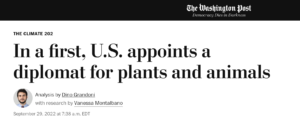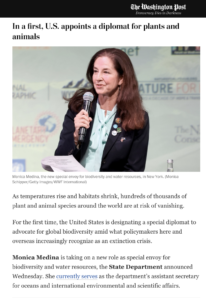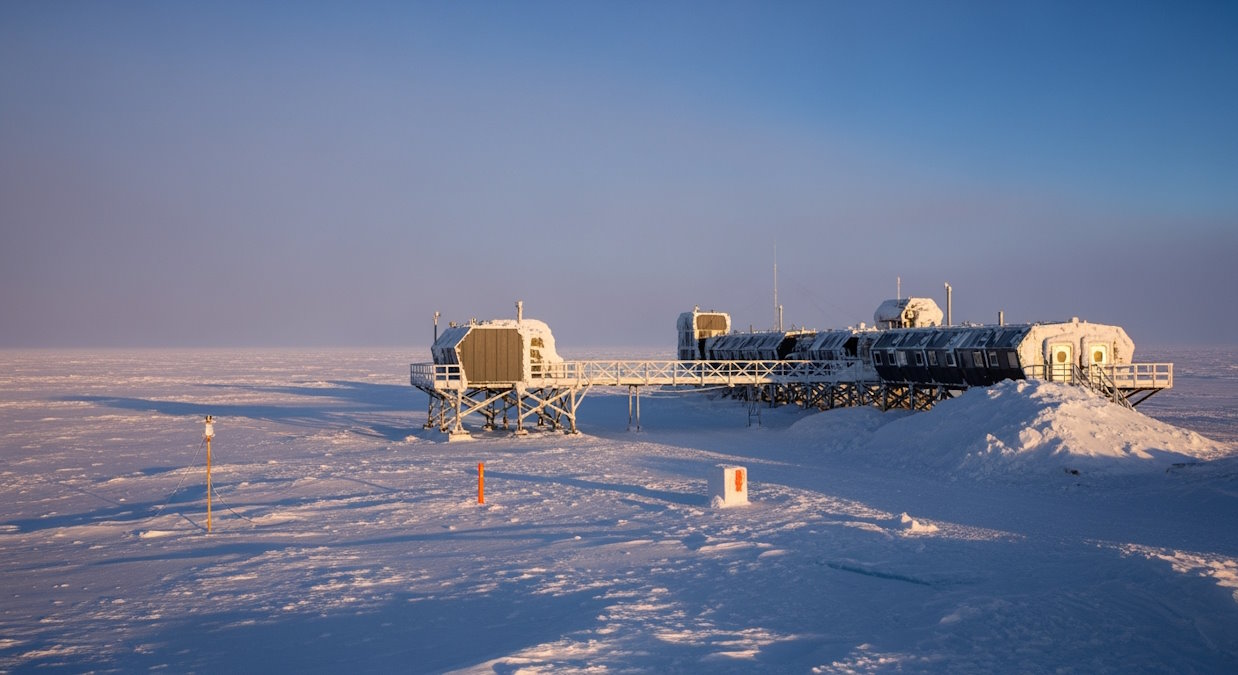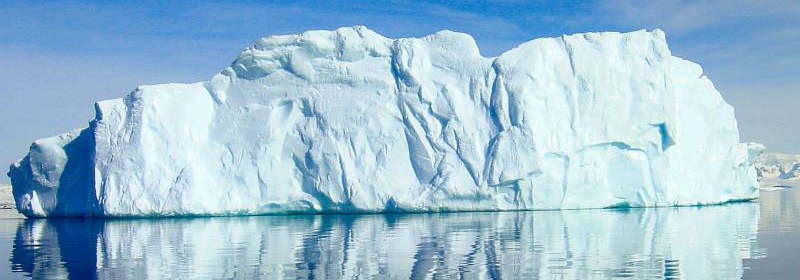
Climate Depot By Marc Morano | Sept. 29, 2022
Wash Post: For the first time, the United States is designating a special diplomat to advocate for global biodiversity amid what policymakers here and overseas increasingly recognize as an extinction crisis. Monica Medina is taking on a new role as special envoy for biodiversity and water resources, the State Department announced Wednesday. … The appointment underscores the Biden administration’s desire to protect land and waters not just at home but to also conserve habitats abroad. ‘Not just about nature for nature’s sake’ … Medina noted that the Inflation Reduction Act passed this year set aside billions of dollars for conservation funding. … “It’s a crisis that we face that’s interwoven with the climate crisis, but also independent and important on its own,” she said. “If we can solve the biodiversity crisis, we’re a long way along the way to solving the climate crisis.”
The grift is on! The State Department’s new ‘diplomat for plants & animals’ just happens to be the wife of Biden’s White House chief of Staff Ron Klain. Imagine the coincidence!
:
https://www.washingtonpost.com/politics/2022/09/29/first-us-appoints-diplomat-plants-animals/
In a first, U.S. appoints a diplomat for plants and animals
Analysis by Dino Grandoni with research by Vanessa Montalbano
Good morning and welcome to The Climate 202! Dino Grandoni, a national environment reporter for The Washington Post, wrote the top of today’s newsletter.
For the first time, the United States is designating a special diplomat to advocate for global biodiversity amid what policymakers here and overseas increasingly recognize as an extinction crisis.Monica Medina is taking on a new role as special envoy for biodiversity and water resources, the State Department announced Wednesday. She currently serves as the department’s assistant secretary for oceans and international environmental and scientific affairs.
‘Not just about nature for nature’s sake’The loss of biodiversity isn’t just a tragedy for wildlife. It’s one of the biggest threats facing humanity.
According to a major U.N. report in 2019, a million species face possible extinction, with dire implications for humans who depend on ecosystems for food, fresh water and other resources. Overfishing, pollution, pesticides, disease, urban sprawl and, of course, climate change contribute to declines in imperiled species’ populations worldwide.
“There’s a direct connection between biodiversity loss and instability in a lot of parts of the world,” Medina said in a recent phone interview. “It’s not just about nature for nature’s sake. I think it is about people.”
The aim of the U.N. Convention on Biological Diversity — also known as COP-15 — is for nations to reverse the loss of species by adopting an international framework for conserving biodiversity. The effort is akin to the climate talks in 2015 that yielded the Paris agreement.
- What the United States wants out of the conference: For nations to commit to conserving 30 percent of their land and water area. “We are looking for ways to reach that goal, because that’s what scientists tell us we need in order to have a healthy planet,” Medina said.
- One big hurdle: Defining what, exactly, counts as land and water conserved? “That is part of the discussion, is what counts,” she said.
- Is the United States doing its part? President Biden set a goal of conserving nearly a third of the nation’s land and waters by 2030.
Biden has taken a few steps toward that target, restoring protections for two desert expanses in Utah and reinstating fishing restrictions in a marine monument off New England. Both moves reversed decisions made by President Donald Trump.
But the Biden administration has yet to identify many other specific places for new protections. Medina noted that the Inflation Reduction Act passed this year set aside billions of dollars for conservation funding.
The link between biodiversity and climate changeRising seas flood forests and kill trees. Increasing temperatures allow for the greater spread of disease, such as an avian form of malaria that is wiping out birds in Hawaii. Warming waters leach out oxygen, suffocating marine life.
But protecting ecosystems such as forests and peatlands, Medina noted, will help keep climate-warming carbon out of the atmosphere in the first place.
“It’s a crisis that we face that’s interwoven with the climate crisis, but also independent and important on its own,” she said. “If we can solve the biodiversity crisis, we’re a long way along the way to solving the climate crisis.”






